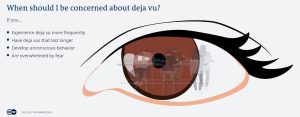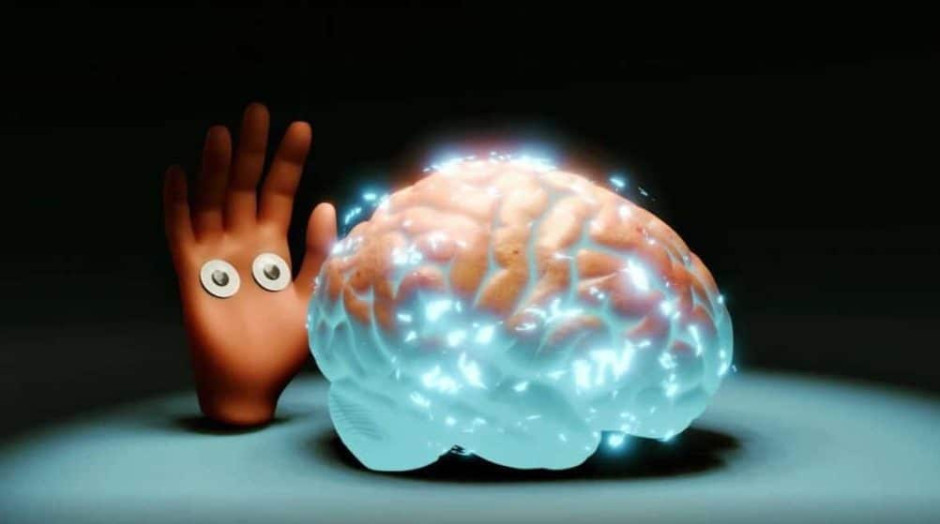[vc_row][vc_column][vc_column_text dp_text_size=”size-4″]Everybody has felt a sense of déjà vu at some point in their lives. Some have referred to it as a paranormal occurrence or even suggested a connection to another dimension. But where does this eerie sense come from exactly?
The word was created in 1876 by French philosopher and researcher Emile Boirac and meaning “already seen.”
But since Plato, who perceived it as proof of previous lives, thinkers have attempted to explain the phenomenon. This was later described by Sigmund Freud as a “recollection of unconscious fantasy coupled with a desire to improve the present situation.” While contemporary Hollywood refers to it as a “glitch in the matrix,” Carl Jung believed it to be connected to the collective unconscious.
Deja vu, however, is completely normal and has nothing supernatural about it, according to James J. Giordano, a neurology professor at Georgetown University in Washington, D.C.
“Deja vu is literally a person’s subjective experience of repeating a particular set of events, activities, thoughts, and feelings, even though that has never in reality occurred before,” Giordano added.
About 90% of people have had a deja vu experience, though it gets less common as we get older.
But do you understand why you occasionally have this eerie feeling?
A real mystery in science:
Giordano told DW that “our brain basically functions like a time and space machine.” It compares everything in our present to a similar or dissimilar event in the past. It will be able to effectively plan the future in this way. However, there’s a chance that these signals might be confused.
Giordano hypothesises that the thalamus, a region in the centre of the brain, may be involved in the phenomenon. For further interpretation and processing, all sensory data from hearing, taste, touch, and other senses must pass through the thalamus and reach the cerebral cortex, the top layer of the brain.
And if the speed of those exchanges differs somewhat, it appears to us as though we are experiencing the present and remembering it. Therefore, our brain has mistakenly conflated the present with the past, according to Giordano.
There is no conclusive explanation for why and how deja vu occurs, according to Roderick Spears, associate professor of migraine research and clinical sciences at Brown University in Providence, Rhode Island.
Deja vu is a difficult phenomenon to replicate in a laboratory setting, making it challenging for researchers to draw any conclusions from it.
A window to a parallel universe?
Studying is challenging since it occurs haphazardly. We are unsure of how to start the episodes in a lab, Spears said.
Scientists have developed a number of theories over the years on why and how it occurs.
Dual processing, in which information is stored and retrieved via various brain processes, is a well-known notion from a neurological standpoint.
For instance, you might be reading this post while lounging in your living room. You can smell your mother’s cooking, see your pet curled up on the couch, hear your phone’s notification sound, and feel the sun’s rays on your skin. As a result of processing, each of these experiences is combined into a single event.
The dual processing theory postulates that if there is a tiny delay in the brain’s processing of one of these inputs, it will perceive the experience as two independent events, giving you the impression of familiarity.
Studies have also connected parallel universes and déjà vu. Deja vu, according to theoretical physicist Dr. Michio Kaku, is a type of memory glitch that occurs when “fragments of memories stored in the brain… are elicited by moving into an environment that resembles something we’ve already experienced.”
Deja vu might be trying to teach us something about where we are in those other universes, he speculates, as well as the possibility of switching between them.

Deja vu as a symptom of stress
Studies have also suggested that stress may contribute to deja vu.
“A well-rested and energised brain functions more effectively. The brain becomes exhausted when you are under a lot of stress or worry a lot. As a result, our brain activity pattern may shift slightly. Given those modifications, having deja vu is not unusual, according to Giordano.
According to Spears, highly educated people experience deja vu more frequently than less educated individuals. People who travel frequently, remember their dreams, and have liberal values are more likely to encounter it, he claimed.
Is it a sign of an unhealthy brain?
“Not at all,” Giordano responded. Healthy people frequently experience deja vu, which most frequently occurs between the ages of 15 and 25.
However, Spears advises anyone who experiences it frequently, such as several times per month, to seek medical attention.

He adds that déjà vu may be a sign of anything serious if it’s connected to unconsciousness or an unusual dream-like state.
Experiencing deja vu for more than a few seconds or finding it difficult to tell what is genuine from what is not are warning signs. Alternatively, you might observe a person exhibiting unconscious behaviours, such as messing with their hair or having trouble holding objects in their hands. Additionally, a heightened heart rate or a severe fear should prompt medical attention, according to Spears.
Deja vu can occasionally be a symptom of a seizure, more especially an epileptic seizure, which explains why.
Most seizures originate in the temporal lobe. The person is semi-conscious but not entirely unconscious when the lobe is overactive. This may cause you to have deja vu, according to Spears.
Although there is general agreement about what deja vu feels like and there are many theories as to why it occurs, scientists still don’t have a conclusive explanation for this unsettling experience.
Spears stated, “We just don’t have a convincing structural explanation yet.[/vc_column_text][/vc_column][/vc_row]











